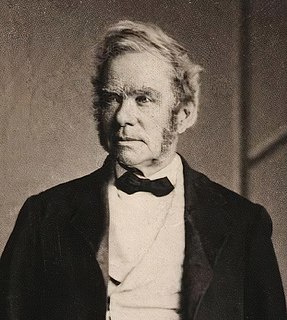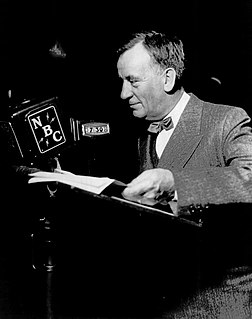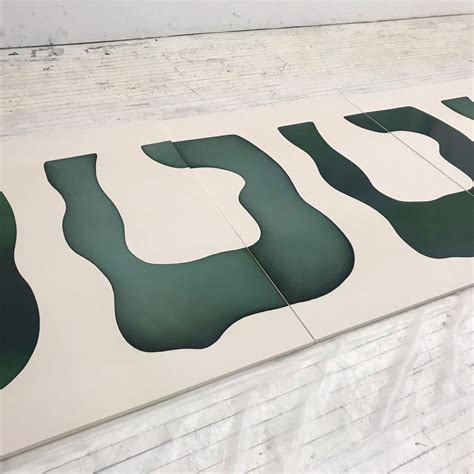A Quote by Ben Shahn
If one has set for himself the position that his painting shall not misconstrue his personal mode of thinking, then he must be rather alert to just what he does think.
Related Quotes
The fact that labour is external to the worker, i.e., it does not belong to his intrinsic nature; that in his work, therefore he does not affirm himself but denies himself, does not feel content but unhappy, does not develop freely his physical and mental energy but mortifies his body and his mind. The worker therefore only feels himself outside his work, and in his work feels outside himself.
Criticism has plucked the imaginary flowers on the chain not in order that man shall continue to bear that chain without fantasy or consolation, but so that he shall throw off the chain and pluck the living flower. The criticism of religion disillusions man, so that he will think, act, and fashion his reality like a man who has discarded his illusions and regained his senses, so that he will move around himself as his own true Sun. Religion is only the illusory Sun which revolves around man as long as he does not revolve around himself.
It is God's earth out of which man is taken. From it he has his body. His body belongs to his essential being. Man's body is not his prison, his shell his exterior, but man himself. Man does not "have" a body; he does not "have" a soul; rather he "is" body and soul. Man in the beginning is really his body. He is one. He is his body, as Christ is completely his body, as the Church is the body of Christ
Who does his task from day to day and meets whatever comes his way, Believing God has willed it so, has found real greatness here below. Who guards his post, no matter where, believing God must need him there, Although but lowly toil it be, has risen to nobility. For great and low there's just one test, 'tis that each man shall do his best, Who works with all the strength he can, shall never die in debt to man.
What I think confuses things is when people approach painting as an inherently expressive or personal medium. We still tend to have this expectation of purity with painting, this idea not only that the artist must be reflected in his or her canvases, but more importantly, that this is where one finds meaning.
Jesus no doubt fits his teaching into the late-Jewish messianic dogma. But he does not think dogmatically. He formulates no doctrine. He is far from judging any man's belief by reference to any standard of dogmatic correctness. Nowhere does he demand of his hearers that they shall sacrifice thinking to believing.
The judge's authority depends upon the assumption that he speaks with the mouth of others. That is to say, the momentum of his utterances must be greater than any which his personal reputation and character can command, if it is to do the work assigned to it - if it is to stand against the passionate resentments arising out of the interests he must frustrate - for while a judge must discover some composition with the dominant trends of his times, he must preserve his authority by cloaking himself in the majesty of an overshadowing past.
At least once every human should have to run for his life, to teach him that milk does not come from supermarkets, that safety does not come from policemen, that 'news' is not something that happens to other people. He might learn how his ancestors lived and that he himself is no different--in the crunch his life depends on his agility, alertness, and personal resourcefulness.
The Plagiarism of orators is the art, or an ingenious and easy mode, which some adroitly employ to change, or disguise, all sorts of speeches of their own composition, or that of other authors, for their pleasure, or their utility; in such a manner that it becomes impossible even for the author himself to recognise his own work, his own genius, and his own style, so skilfully shall the whole be disguised.







































